Postpartum Safety: What New Mothers Need to Know
The journey into motherhood is a beautiful yet challenging adventure, especially during the postpartum period. This time is not just about welcoming a new life but also about understanding and navigating the changes that come with it. Postpartum safety is crucial for new mothers, as it encompasses a wide range of physical, emotional, and practical considerations that can significantly impact recovery and the overall experience of motherhood. In this article, we will explore essential safety tips and information that every new mother should know to ensure a smoother transition into this new chapter of life.
Postpartum recovery is a critical phase for new mothers, encompassing not just physical healing but also emotional adjustment. It’s like a roller coaster ride, filled with ups and downs, and knowing what to expect can help mothers prepare for the changes they will experience after childbirth. Whether it’s the physical discomfort of healing or the emotional shifts that come with hormonal changes, understanding this process is key. It's important to remember that every mother’s experience is unique, and having the right information can empower you to take charge of your recovery.
Maintaining physical health after childbirth is vital for both the mother and the baby. After all, a healthy mother means a happy baby! Postpartum, many women face challenges such as fatigue, pain, and hormonal fluctuations. Recognizing these common postpartum issues is essential. For instance, it’s not uncommon to feel overwhelming tiredness or experience discomfort in the body as it heals. Self-care practices, such as gentle exercises, hydration, and proper nutrition, play a significant role in recovery. Moreover, don’t hesitate to seek medical advice when needed; your healthcare provider is there to support you on this journey.
New mothers often experience a variety of symptoms that can range from mild to concerning. Common symptoms include:
- Fatigue
- Pain in the pelvic area
- Hormonal changes leading to mood swings
- Changes in appetite
Understanding what is normal can help mothers navigate this period more effectively. If you find yourself struggling with any of these symptoms, remember that seeking help is a sign of strength, not weakness!
Effective pain management strategies can significantly improve a new mother's recovery experience. Options may include:
- Over-the-counter pain relief medications, as advised by your healthcare provider
- Warm baths to soothe sore muscles
- Gentle stretching exercises to relieve tension
These strategies, combined with listening to your body, can help you manage discomfort better during this time.
Rest and proper nutrition are crucial for recovery. Sleep may feel like a luxury, but it’s essential for healing. Prioritize naps when the baby sleeps and don’t hesitate to ask for help from family or friends. Additionally, a balanced diet can work wonders in replenishing your energy and supporting your body’s healing process. Think of it as fueling a car; the better the fuel, the better the performance! Incorporate a variety of foods, including fruits, vegetables, whole grains, and lean proteins, to ensure you’re getting the nutrients you need.
Emotional health is just as important as physical recovery. New mothers often face emotional challenges, such as anxiety or the baby blues. It’s essential to acknowledge these feelings and understand that seeking support from friends, family, or professionals can make a world of difference. Surround yourself with a supportive network, and don’t hesitate to share your feelings. Remember, you’re not alone in this journey!
Ensuring a safe home environment is essential for new mothers. It’s like building a fortress for your little one, where they can grow and thrive without unnecessary risks. Baby-proofing your home is a crucial step in creating a nurturing space for your newborn. This includes removing hazards, securing furniture, and ensuring that everything is within reach but out of baby’s grasp.
Baby-proofing involves several key steps, such as:
- Covering electrical outlets
- Securing heavy furniture to the wall
- Keeping small objects and choking hazards out of reach
By taking these precautions, you can create a safe haven for your baby to explore.
Understanding safe sleep practices is crucial for newborns. The guidelines to reduce the risk of sleep-related incidents include:
- Placing the baby on their back to sleep
- Using a firm mattress with a fitted sheet
- Avoiding soft bedding, toys, or bumpers in the crib
These practices promote a safer sleeping environment for babies, allowing new mothers to rest easier knowing their little ones are safe.
A strong support network can make a significant difference in a new mother's postpartum experience. Think of it as having a safety net—when you fall, there are people to catch you! Building connections with family, friends, and community resources can provide the encouragement and assistance needed during this transition.
Community resources can provide valuable support and information. Many local organizations offer services such as parenting classes, lactation support, and mental health resources. These services can be a lifeline for new mothers, helping them navigate the challenges of parenthood.
Joining parenting groups can foster connection and support. Engaging with other new mothers allows for shared experiences and advice. It’s like having a built-in support system where you can laugh, cry, and celebrate the ups and downs of motherhood together.
Knowing when to seek professional help is crucial for postpartum safety. It’s essential to recognize warning signs that may indicate a need for assistance. If you’re feeling overwhelmed, anxious, or persistently sad, don’t hesitate to reach out for help.
Postpartum depression affects many new mothers and can manifest in various ways. Common symptoms include:
- Persistent sadness or hopelessness
- Loss of interest in activities you once enjoyed
- Difficulty bonding with your baby
Recognizing these symptoms early is vital for addressing them effectively.
Accessing professional help can be a vital step in recovery. If you’re experiencing any concerning symptoms, reach out to your healthcare provider. They can guide you in finding the right support, whether it’s therapy, counseling, or medication.
Prioritizing postpartum safety is essential for new mothers. By understanding the importance of physical and emotional health, creating a safe environment for your baby, and building a support network, you can navigate this incredible journey with confidence. Remember, it’s okay to ask for help, and taking care of yourself is just as important as taking care of your little one. Embrace this new chapter with open arms and the knowledge that you’re not alone!
1. How long does postpartum recovery typically last?
Postpartum recovery can vary, but it generally takes about six weeks for the body to heal physically. However, emotional recovery may take longer, and it’s essential to give yourself grace during this time.
2. When should I seek help for postpartum depression?
If you’re experiencing persistent feelings of sadness, anxiety, or difficulty bonding with your baby, it’s crucial to reach out for help. Early intervention can make a significant difference.
3. What are some self-care practices I can incorporate?
Prioritize rest, nutrition, and gentle exercise. Also, don’t hesitate to ask for help from family or friends to give yourself some much-needed downtime.
4. How can I find local parenting groups?
Check community centers, social media platforms, or local hospitals for parenting groups. They can provide valuable support and connection with other new mothers.

Understanding Postpartum Recovery
Postpartum recovery is a critical phase for new mothers, encompassing both physical healing and emotional adjustment. After the incredible journey of childbirth, a mother’s body and mind go through significant transformations. It’s like stepping into a new world where everything feels different, yet familiar. This period can last several weeks to months, and understanding what to expect can make it a smoother transition.
During the postpartum phase, many women may feel overwhelmed by the changes in their bodies and emotions. It’s essential to recognize that these feelings are completely normal. The body is busy healing from the physical demands of labor and delivery, and this process can lead to a rollercoaster of emotions due to hormonal fluctuations. Think of it as a storm passing through; while it may feel chaotic at times, the calm will eventually return.
To navigate this period effectively, new mothers should prioritize self-care and education. Understanding the common challenges and symptoms can help mothers identify what is typical and when to seek help. For instance, it’s common to experience:
- Fatigue and sleep deprivation
- Physical discomfort from delivery
- Emotional fluctuations, including anxiety or mood swings
By recognizing these as part of the postpartum experience, mothers can approach their recovery with more compassion and patience. It's important to remember that healing is not a race. Each woman's journey is unique, and it's perfectly okay to take the time needed to recover fully.
Additionally, creating a supportive environment is crucial during this time. Friends and family can play a significant role in helping new mothers feel more at ease. Whether it's offering a listening ear, providing meals, or simply being present, support from loved ones can make a world of difference. Think of it as having a safety net; it allows mothers to focus on their recovery without the added stress of daily responsibilities.
In summary, understanding postpartum recovery is about acknowledging the physical and emotional changes that occur after childbirth. By being informed and seeking support, new mothers can navigate this transformative period with greater confidence and resilience.

Physical Health Considerations
Maintaining physical health after childbirth is not just important; it’s essential for new mothers to regain their strength and well-being. The journey of postpartum recovery is like a marathon, not a sprint. It requires time, patience, and a focus on self-care. New mothers may face a variety of challenges during this period, including physical discomfort, fatigue, and the need to adapt to a new routine. Understanding these challenges can empower mothers to take proactive steps in their recovery.
Common postpartum issues often include:
- Fatigue: Many new mothers experience overwhelming tiredness due to sleepless nights and the physical demands of caring for a newborn.
- Pain: Whether from a cesarean section, vaginal delivery, or the physical toll of pregnancy, pain management is crucial.
- Hormonal Changes: Fluctuating hormones can lead to mood swings and emotional upheaval, impacting overall health.
Recognizing these symptoms is the first step towards managing them effectively. For instance, if you find yourself feeling persistently fatigued or in pain, it’s crucial to understand that these feelings are common but not to be ignored. Seeking medical advice can help ensure that any underlying issues are addressed promptly.
Effective pain management strategies can significantly improve a new mother's recovery experience. Many mothers find relief through a combination of medications, physical therapy, and natural remedies. Over-the-counter pain relievers, prescribed medications, or even warm baths can provide much-needed comfort. However, it’s important to consult with a healthcare provider to find the best approach tailored to individual needs. Remember, your body has just gone through a tremendous change, and giving it the care it deserves is paramount.
Rest and proper nutrition are crucial for recovery. Think of your body as a car; if you don’t fuel it properly or let it rest, it won’t run efficiently. New mothers should aim for adequate sleep whenever possible, even if it means napping during the day when the baby sleeps. It’s also vital to maintain a balanced diet rich in fruits, vegetables, whole grains, and proteins to support healing and energy levels. Hydration is equally important—drinking plenty of water can help combat fatigue and keep your body functioning optimally.
Here’s a simple table to illustrate some key nutritional components to focus on during postpartum recovery:
| Nutrient | Sources | Benefits |
|---|---|---|
| Protein | Chicken, fish, legumes | Supports tissue repair and energy |
| Iron | Spinach, red meat, beans | Helps combat fatigue and supports blood health |
| Calcium | Dairy, leafy greens, fortified products | Essential for bone health and breastfeeding |
| Folate | Citrus fruits, nuts, whole grains | Supports cell growth and overall health |
In summary, addressing physical health considerations during the postpartum period is vital for a smooth recovery. By recognizing symptoms, managing pain, prioritizing rest, and focusing on nutrition, new mothers can navigate this transformative time with greater ease and confidence.

Common Postpartum Symptoms
After giving birth, many new mothers encounter a variety of postpartum symptoms that can be both surprising and overwhelming. Understanding these symptoms is essential because it helps mothers distinguish between what is normal and what may require medical attention. For instance, feeling a sense of fatigue is common as your body adjusts to the demands of caring for a newborn. However, it’s important to recognize that this fatigue can sometimes escalate into something more serious.
Some of the most common symptoms include:
- Fatigue: This isn’t just about being tired; it’s an all-encompassing exhaustion that can make even simple tasks feel monumental.
- Pain: Many women experience pain in their abdominal area as their uterus contracts back to its pre-pregnancy size. Additionally, soreness may occur in areas that underwent trauma during delivery.
- Hormonal Changes: Fluctuations in hormones can lead to mood swings, irritability, and even feelings of sadness or anxiety.
- Breast Changes: Whether you’re breastfeeding or not, you might notice changes in your breasts, including engorgement, tenderness, or leaking milk.
- Urinary Issues: Some women experience incontinence or difficulty urinating, which can be distressing but is often temporary.
Recognizing these symptoms is the first step toward understanding your body’s recovery process. It’s crucial to listen to your body and not dismiss these feelings as just part of motherhood. For example, if you find yourself feeling persistently sad or disconnected from your baby, this could be a sign of postpartum depression, which affects many new mothers. Early recognition and intervention can make a significant difference in your recovery journey.
Moreover, don’t hesitate to reach out for help. Whether it’s talking to a friend, family member, or healthcare provider, sharing your experiences can lighten the emotional load and provide you with the support you need. Remember, you’re not alone in this journey; many mothers have walked this path and emerged stronger on the other side.
Q: How long do postpartum symptoms last?
A: Postpartum symptoms can vary widely among individuals. While some may feel better within a few weeks, others might experience symptoms for several months. It’s important to monitor your symptoms and consult with a healthcare provider if they persist.
Q: What should I do if I experience severe pain?
A: If you experience severe pain that doesn’t improve with over-the-counter pain relief or if it worsens, it’s essential to seek medical advice. This could indicate an underlying issue that needs to be addressed.
Q: Are mood swings normal?
A: Yes, mood swings are quite common due to hormonal changes after childbirth. However, if these mood swings lead to feelings of hopelessness or persistent sadness, it’s crucial to speak with a healthcare professional.
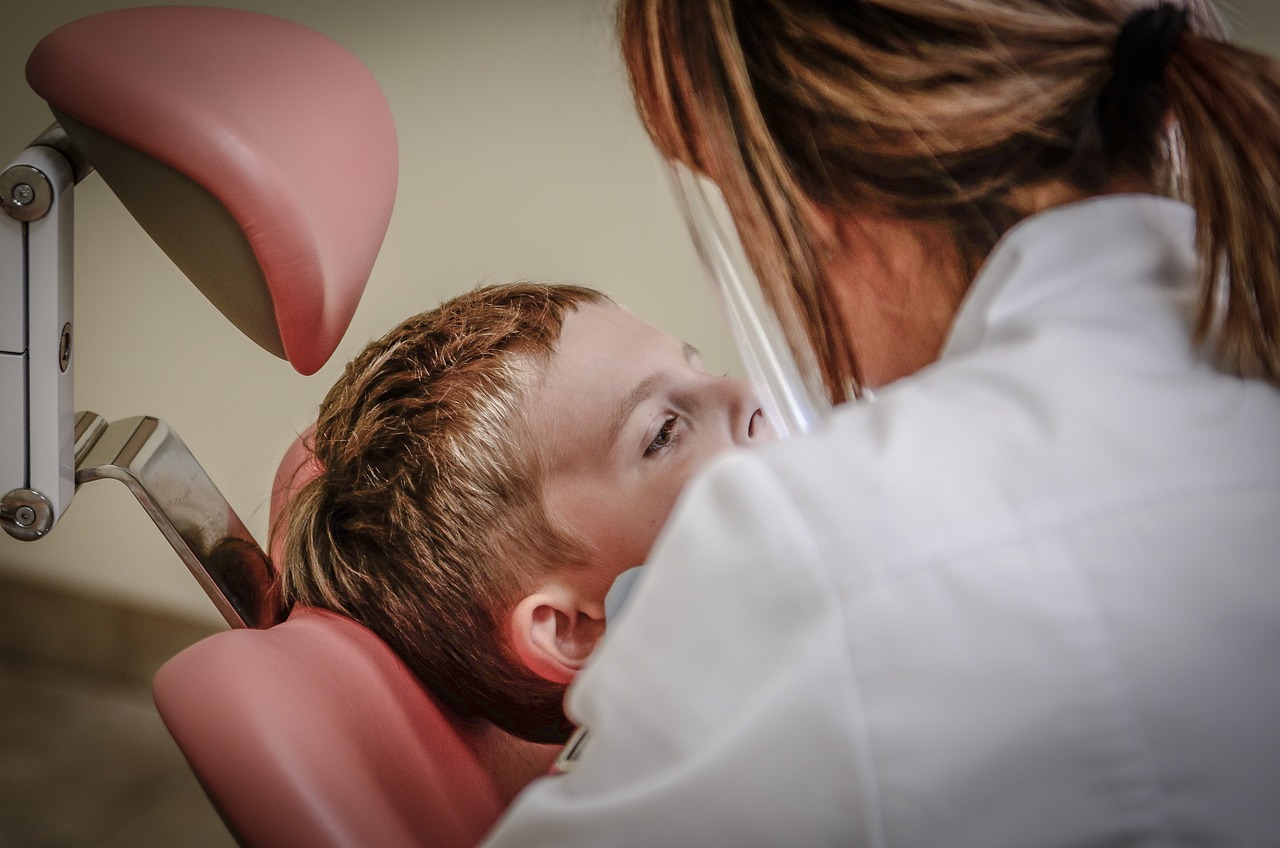
Managing Pain and Discomfort
After childbirth, many new mothers find themselves navigating a landscape of physical discomfort and pain that can feel overwhelming. It's essential to understand that experiencing pain during the postpartum period is common, but it doesn't have to be a constant companion. Knowing how to manage this discomfort can significantly enhance your recovery experience. Think of it like a rollercoaster ride; while there might be ups and downs, you can take steps to make the ride smoother.
First and foremost, listening to your body is crucial. Each woman's recovery journey is unique, and what works for one may not work for another. Here are some effective strategies to help manage pain and discomfort:
- Rest and Relaxation: Your body has just gone through a monumental event, so give it the rest it deserves. Try to take short naps when your baby sleeps and don’t hesitate to ask for help with household chores.
- Ice and Heat Therapy: Applying ice packs to swollen areas can help reduce inflammation, while warm compresses can soothe muscle tension. Alternating between the two can provide relief.
- Over-the-Counter Pain Relief: Medications such as ibuprofen or acetaminophen can be very effective for managing pain. However, always consult with your healthcare provider before taking any medication to ensure it’s safe for you, especially if you are breastfeeding.
Additionally, engaging in gentle physical activity, like walking, can help improve circulation and reduce stiffness. It's like shaking off the cobwebs; moving can invigorate your body and mind. However, be sure to listen to your body and avoid pushing yourself too hard.
Don’t forget about emotional pain; sometimes, the emotional toll of adjusting to motherhood can feel just as heavy as physical discomfort. Connecting with other mothers, whether through online forums or local groups, can provide a supportive outlet. Sharing your experiences can help lighten the load, making you feel less isolated in your journey.
In some cases, if the pain persists or worsens, it’s crucial to consult a healthcare professional. They can assess your symptoms and recommend appropriate treatments or therapies. Remember, seeking help is a sign of strength, not weakness. Just like a car needs regular maintenance, your body needs attention and care to function optimally.
In summary, managing pain and discomfort during the postpartum period is about finding the right balance of rest, activity, and support. Each step you take towards understanding your body and its needs brings you closer to a smoother recovery. So, take a deep breath, embrace the journey, and remember that it’s okay to ask for help along the way.
Q: How long does postpartum pain typically last?
A: Postpartum pain can vary greatly from woman to woman. Generally, most physical discomfort should start to improve within the first few weeks after childbirth, but some women may experience pain for several months, especially if they had a cesarean delivery.
Q: Is it normal to feel emotional pain after childbirth?
A: Yes, many new mothers experience a range of emotions after childbirth, including sadness and anxiety. It's essential to talk about these feelings with someone you trust or a healthcare professional.
Q: When should I seek help for postpartum pain?
A: If you experience severe pain that doesn't improve with home care, or if you have symptoms like fever, heavy bleeding, or signs of infection, it's important to reach out to your healthcare provider.

Importance of Rest and Nutrition
After giving birth, new mothers often find themselves in a whirlwind of emotions, responsibilities, and physical changes. One of the most critical aspects of postpartum recovery is rest. It's easy to underestimate the power of a good night's sleep or a quiet moment during the day, but these moments are essential for healing. Your body has just undergone a significant transformation, and it needs time to recover from the physical exertion of childbirth. Think of rest as your body’s way of recharging its batteries; without it, you risk running on empty, which can lead to fatigue and burnout.
Nutrition plays a vital role alongside rest. Eating well is not just about satisfying hunger; it’s about fueling your body with the right nutrients to aid recovery. A balanced diet rich in vitamins, minerals, and proteins can enhance your healing process, boost your energy levels, and even improve your mood. Consider incorporating foods that are high in iron, calcium, and omega-3 fatty acids, as these nutrients can support both physical recovery and emotional stability.
Here’s a quick overview of some essential nutrients that new mothers should focus on:
| Nutrient | Benefits | Sources |
|---|---|---|
| Iron | Helps prevent anemia and supports energy levels | Red meat, spinach, lentils |
| Calcium | Essential for bone health and muscle function | Dairy products, almonds, leafy greens |
| Omega-3 Fatty Acids | Supports brain health and reduces inflammation | Fish, flaxseeds, walnuts |
In addition to focusing on nutrition, it’s crucial to listen to your body. If you feel tired, allow yourself to rest. If hunger strikes, choose nourishing foods that will give you sustained energy. This balance of rest and nutrition not only aids in physical recovery but also helps stabilize your emotions during this transformative time. Remember, taking care of yourself is not selfish; it’s necessary for you to be the best mother you can be.
So, take a moment to breathe, nourish your body, and give yourself permission to rest. Your journey into motherhood is just beginning, and prioritizing your health will set a solid foundation for you and your baby.
- How much rest do I need after childbirth?
Every mother is different, but aim for at least 7-9 hours of sleep per night, supplemented by naps during the day if possible.
- What foods should I avoid during postpartum recovery?
Try to limit processed foods, excessive sugar, and caffeine, as they can affect your energy levels and mood.
- Can I exercise during the postpartum period?
Light exercises, like walking or gentle stretching, can be beneficial, but always consult your healthcare provider before starting any new routine.
- How can I ensure I'm getting enough nutrients?
Consider speaking with a nutritionist or your healthcare provider to create a personalized meal plan that meets your needs.
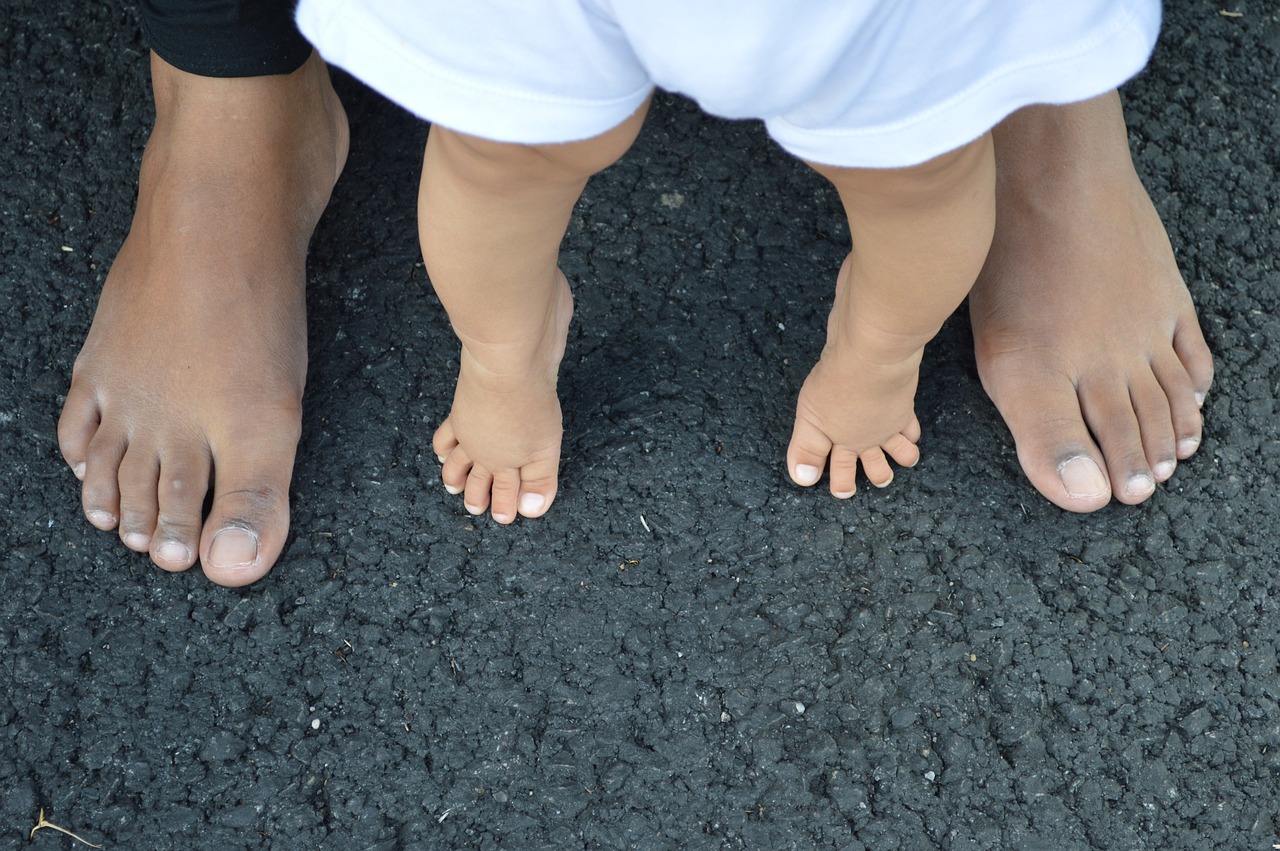
Emotional Well-being and Support
When it comes to the postpartum period, emotional well-being is just as crucial as physical recovery. New mothers often find themselves navigating a whirlwind of feelings, from joy to anxiety, and even sadness. It's completely normal to feel overwhelmed; after all, you’ve just brought a new life into the world! But understanding that these emotions are part of the journey can be incredibly empowering.
One of the most important aspects of emotional recovery is recognizing that you are not alone. Many new mothers face similar challenges, and reaching out for support can be a game changer. Think of it this way: just like you wouldn’t hesitate to call a friend if you were feeling unwell physically, the same applies to your emotional health. Whether it’s talking to family, friends, or professionals, sharing your feelings can lighten the load.
Here are some key points to consider when it comes to emotional support:
- Stay Connected: Maintaining relationships with loved ones can provide a vital support system. Don’t hesitate to lean on your partner, family, or close friends.
- Seek Professional Help: If your feelings become too overwhelming, don’t hesitate to reach out to a mental health professional. They can offer strategies and coping mechanisms tailored to your needs.
- Join Support Groups: Connecting with other new mothers can provide a sense of community. Sharing experiences can help you feel less isolated and more understood.
Don’t forget to be kind to yourself during this transition. It's easy to fall into the trap of thinking you should have everything figured out right away, but remember, it’s okay to take your time. Practicing self-care is essential; simple things like taking a warm bath, reading a book, or even just enjoying a quiet moment can do wonders for your mental state.
In summary, prioritizing your emotional well-being is not just beneficial for you; it also positively impacts your baby. A happy, healthy mother creates a nurturing environment for her child. So, don’t shy away from seeking support and taking the time you need to heal emotionally. Remember, you’re doing an amazing job, and it’s perfectly okay to ask for help along the way!
As you navigate the postpartum period, you might have some questions about emotional well-being and support. Here are a few frequently asked questions that can help clarify some of your concerns:
- What are common emotional challenges faced by new mothers? Many new mothers experience feelings of anxiety, sadness, and mood swings due to hormonal changes and the stress of caring for a newborn.
- How can I find a support group? Look for local community centers, hospitals, or online platforms that offer resources for new mothers. Social media groups can also be a great way to connect.
- When should I seek professional help? If feelings of sadness or anxiety persist for more than a couple of weeks or interfere with your daily life, it’s important to seek professional guidance.

Creating a Safe Environment for the Baby
As a new mother, one of your primary concerns will be ensuring a safe environment for your little one. This is not just about baby-proofing your home; it's about creating a nurturing space where your baby can thrive. Think of your home as the first little world your baby will explore, and just like any world, it needs to be safe and secure. From the moment you bring your baby home, the environment should be welcoming yet free from hazards that could pose risks to their health and safety.
First and foremost, baby-proofing your home is essential. This involves a thorough assessment of your living space to identify potential dangers. For example, sharp corners on furniture can be a risk as your baby starts to crawl and explore. You might want to invest in corner guards to soften these edges. Additionally, securing heavy furniture to the walls can prevent tipping, which is especially important as toddlers begin to pull themselves up to stand.
Another critical aspect of creating a safe environment is ensuring that all hazardous materials, such as cleaning supplies and medications, are stored out of reach or locked away. Babies are naturally curious and tend to explore their surroundings with their mouths, so keeping these items secure is vital. You can also use safety latches on cabinets and drawers to prevent little fingers from prying them open.
When it comes to the baby's sleeping area, understanding safe sleep practices is crucial. The American Academy of Pediatrics recommends that babies sleep on their backs on a firm mattress, free from soft bedding, pillows, or toys, to reduce the risk of Sudden Infant Death Syndrome (SIDS). Make sure the crib meets safety standards and that the mattress fits snugly without gaps. Always keep the crib away from windows, cords, and any other potential hazards.
In addition to physical safety, consider the emotional environment you’re creating for your baby. A calm, soothing atmosphere can significantly impact your baby's emotional well-being. Soft lighting, gentle music, and a comfortable temperature can help create a peaceful space for your newborn to relax and sleep.
As you prepare your home, it may be helpful to think about the following baby-proofing essentials:
- Install outlet covers to prevent electrical accidents.
- Keep small objects and choking hazards out of reach.
- Use non-toxic materials for toys and furniture.
- Ensure that all furniture is stable and secure.
Creating a safe environment for your baby is an ongoing process. As your little one grows and begins to explore, you'll need to continually reassess your home for new hazards. Remember, it’s not just about making your home safe; it’s about creating a space where your baby can learn, grow, and feel secure.
Here are some commonly asked questions about creating a safe environment for your baby:
- What are the most important areas to baby-proof? Focus on the nursery, kitchen, and living areas where your baby will spend a lot of time.
- How can I ensure safe sleep for my baby? Always place your baby on their back in a crib with a firm mattress and no loose bedding.
- When should I start baby-proofing my home? It's best to start baby-proofing before your baby arrives, but continue to make adjustments as they grow and become more mobile.

Baby-proofing Essentials
When you bring a new baby home, the excitement is palpable, but so is the responsibility. Baby-proofing your home is not just a precaution; it's a necessity to ensure your little one’s safety as they start to explore their new world. From the moment they arrive, babies are naturally curious, and it’s our job as parents to create a safe haven for them. Think of your home as a treasure chest filled with wonders, but also potential hazards. So, how do you turn that treasure chest into a safe playground?
First things first, you need to assess your living space. Look around and identify areas that could pose risks. Here are some essential areas to focus on:
- Sharp Edges: Furniture with sharp corners can be dangerous. Consider using corner guards to soften those edges.
- Electrical Outlets: Babies are naturally drawn to outlets. Use outlet covers to prevent any accidental shocks.
- Choking Hazards: Small items like coins, buttons, or small toys should be kept out of reach. A simple rule of thumb is that if it fits through a toilet paper roll, it's a choking hazard.
Next, secure heavy furniture to the wall. Babies are known for their climbing abilities, and a bookcase or dresser can easily tip over if they pull on it. By anchoring these pieces, you can prevent accidents before they happen. Additionally, consider installing safety gates at the top and bottom of stairs to keep your little explorer safe from falls.
Another essential aspect of baby-proofing is to check your home for any toxic substances. This includes cleaning supplies, medications, and even certain plants. Store these items in high cabinets or locked drawers to keep them out of reach. Remember, a curious baby can quickly turn into a little scientist, eager to explore everything within reach!
Lastly, think about the baby’s sleeping environment. The crib should be free of any loose bedding, toys, or pillows that could pose suffocation risks. The American Academy of Pediatrics recommends a firm mattress with a fitted sheet, and nothing else. This simple measure can significantly reduce the risk of Sudden Infant Death Syndrome (SIDS).
In conclusion, baby-proofing is an ongoing process. As your child grows and becomes more mobile, continue to reassess and adapt your strategies. By being proactive and vigilant, you can create a safe environment that allows your baby to explore and learn without unnecessary risks. After all, a safe home is the best foundation for a happy childhood!
Q: When should I start baby-proofing my home?
A: It's best to start baby-proofing before your baby arrives, but you should continually assess your home as your child grows and starts to explore.
Q: What are the most common baby-proofing mistakes?
A: Common mistakes include underestimating the reach of a baby, neglecting to secure heavy furniture, and forgetting about small choking hazards. Always be thorough in your assessment.
Q: How can I ensure my baby has a safe sleeping environment?
A: Use a firm mattress, avoid loose bedding, and ensure the crib meets safety standards. Always place your baby on their back to sleep.
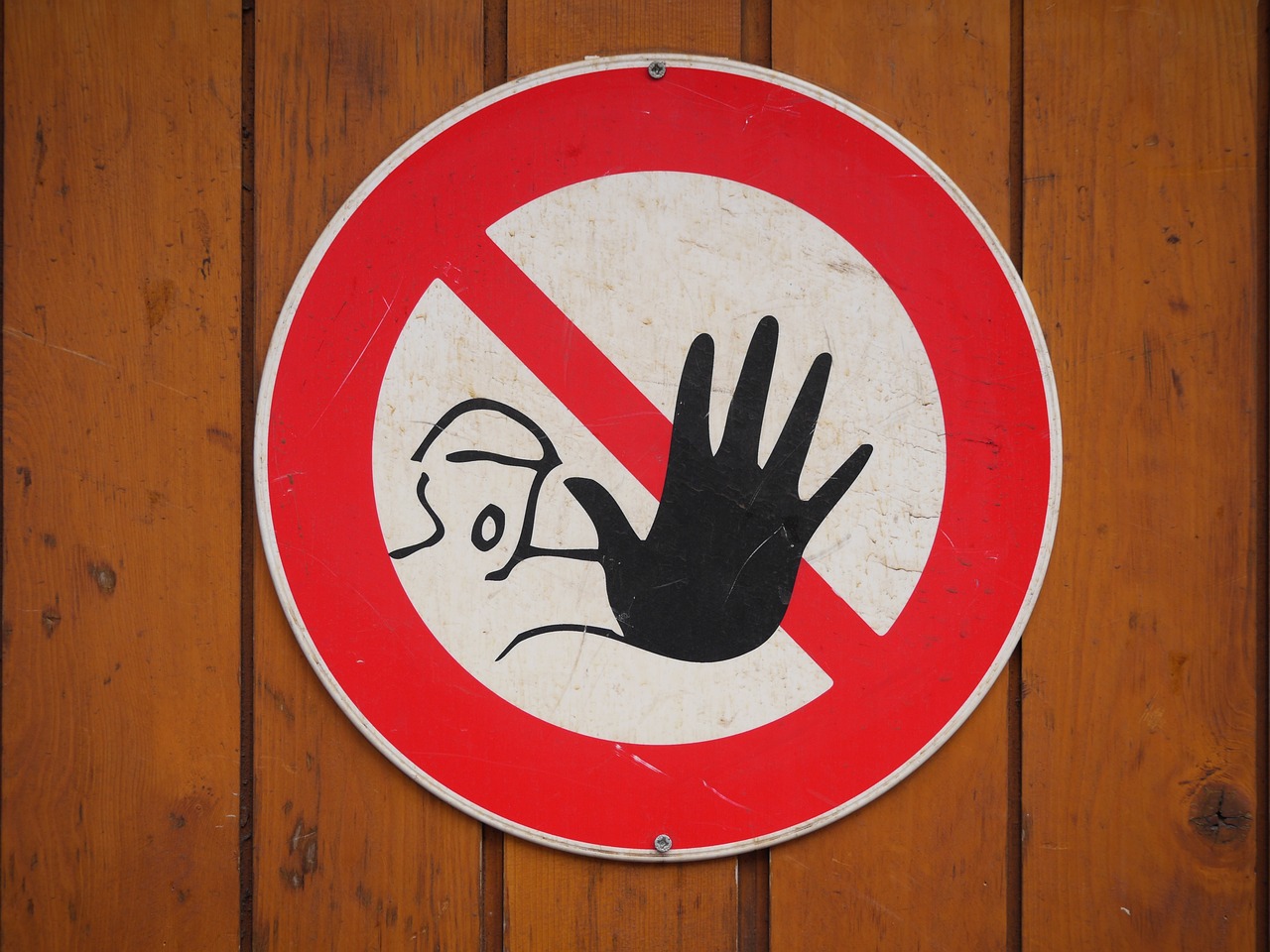
Safe Sleep Practices
Ensuring your newborn has a safe sleep environment is one of the most important responsibilities you have as a new parent. The first few months of your baby's life are crucial for their development, and safe sleep practices can significantly reduce the risk of sleep-related incidents. It may feel overwhelming at times, but understanding the guidelines can help you create a nurturing space where your little one can rest peacefully.
First and foremost, always place your baby on their back to sleep. This position is the safest and has been shown to reduce the risk of Sudden Infant Death Syndrome (SIDS). It's natural to worry about your baby rolling over, but studies have shown that babies who sleep on their backs are less likely to experience SIDS. You might feel like a helicopter parent, but this precaution is essential!
Next, consider the sleeping surface. A firm mattress is critical for your baby's safety. Soft surfaces, such as soft mattresses, couches, or armchairs, can pose a suffocation risk. Make sure the crib or bassinet meets safety standards and is free from any soft bedding, including pillows, blankets, or stuffed toys. Think of it as creating a cozy but safe cocoon for your little one—minimalist and secure!
Another important aspect is the room temperature. Keeping your baby's sleeping environment at a comfortable temperature can help prevent overheating, which is another risk factor for SIDS. Aim for a room temperature between 68°F and 72°F (20°C to 22°C). You can check if your baby is overheating by feeling their neck or back; if they feel sweaty or hot, it might be time to adjust the room's temperature or remove a layer of clothing.
Additionally, consider using a pacifier at nap time and bedtime. Research suggests that pacifier use during sleep can help reduce the risk of SIDS. Just be sure to wait until breastfeeding is well established before introducing a pacifier, usually around three to four weeks. It's a small step that can make a big difference!
Finally, it’s crucial to share your room with your baby, but not your bed. The American Academy of Pediatrics recommends room-sharing for at least the first six months. This means placing your baby's crib or bassinet in your room, making nighttime feedings easier while also ensuring that your baby is close by. However, avoid bed-sharing as it can increase the risk of suffocation and other sleep-related hazards.
In summary, safe sleep practices are vital for your baby's well-being. By following these guidelines, you can create a secure sleeping environment that promotes healthy sleep habits. Remember, it's all about keeping your little one safe while allowing them to drift off into dreamland!
- What is the safest sleep position for my baby? Always place your baby on their back to sleep.
- Can I use blankets in my baby's crib? No, it is recommended to avoid any soft bedding, including blankets, to reduce the risk of suffocation.
- Is it safe to use a pacifier? Yes, using a pacifier at sleep time can help reduce the risk of SIDS.
- How can I tell if my baby is too hot? Check their neck or back; if they feel sweaty or hot, adjust the room temperature or remove a layer of clothing.
- How long should I room-share with my baby? It's recommended to share a room with your baby for at least the first six months.

Building a Support Network
As a new mother, the journey into motherhood can feel like navigating uncharted waters, and having a solid support network can be your lifeboat. Building connections with family, friends, and community resources is not just beneficial; it’s essential for your emotional and physical well-being. Imagine being surrounded by people who understand your struggles, celebrate your victories, and provide a listening ear when you need it most. But how do you go about creating this vital network?
Start by reaching out to those who are already in your life. Family members can be a great source of support, especially if they have experience with parenting. Don’t hesitate to share your feelings and let them know how they can help. Whether it's running errands, babysitting, or just being there to chat, their presence can make a world of difference.
Next, consider your friends. Some of them might be new parents too, and connecting with them can lead to shared experiences and mutual support. You can even set up regular catch-ups—be it over coffee or a quick video call—to discuss the ups and downs of motherhood. You’d be surprised how much lighter your load feels when you share it with someone who understands.
But what if your immediate circle isn’t enough? That’s where community resources come into play. Many communities offer parenting groups or classes that not only provide valuable information but also foster connections with other new mothers. Joining these groups can be a great way to meet people who are going through similar experiences. Think of it as building your own little village of support.
Here are some options to consider when looking for community resources:
- Local Parenting Classes: These can provide both education and a chance to meet other parents.
- Support Groups: Many hospitals and community centers offer groups specifically for new mothers.
- Online Forums: Websites and social media groups can connect you with moms around the world.
Finding parenting groups can also be incredibly beneficial. These groups often allow for the exchange of advice, experiences, and even baby-sitting swaps. They can be a source of comfort and reassurance, where you can learn that you’re not alone in your challenges. Plus, sharing laughs and stories with others can lighten your mood and help you feel more connected.
Remember, building a support network takes time and effort, but the rewards are immeasurable. It’s not just about having someone to talk to; it’s about creating a safety net that allows you to thrive in your new role. So, don’t hesitate to reach out, connect, and cultivate those relationships. After all, it takes a village to raise a child, and having a strong support network is a crucial part of that village.
Q: How do I find local parenting groups?
A: You can start by checking community centers, hospitals, or online platforms like Meetup or Facebook for local parenting groups.
Q: What if I feel shy about joining a new group?
A: It's completely normal to feel shy! Remember that everyone is there for the same reason. Try attending a few sessions to see if it feels right for you.
Q: Can my partner help in building this support network?
A: Absolutely! Encourage your partner to join you in connecting with others, whether it’s through classes or social events. It can strengthen your bond and provide additional support.
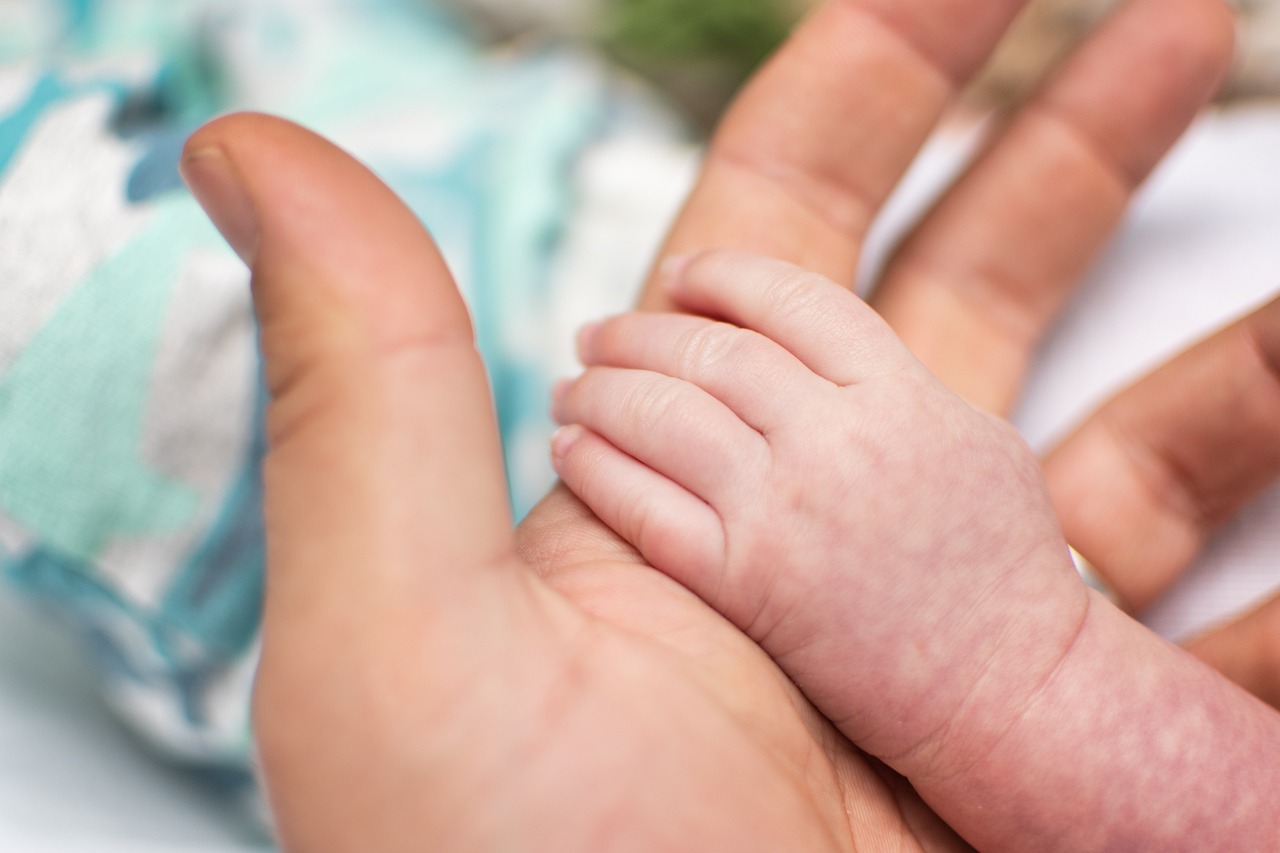
Utilizing Community Resources
When it comes to navigating the postpartum journey, community resources can be a lifesaver for new mothers. These resources are designed to provide support, information, and practical assistance during a time that can feel overwhelming. Think of them as a safety net that can catch you when you're feeling a bit lost. Whether you're looking for parenting classes, lactation consultants, or mental health support, local organizations and community groups can offer invaluable help.
One of the best ways to start utilizing community resources is to connect with local parenting groups. These groups often host meetups, workshops, and discussions that allow new mothers to share experiences and learn from one another. It’s like having a built-in support system right at your fingertips! Plus, many of these groups are facilitated by professionals who can provide expert advice on various topics, from baby care to emotional well-being.
Additionally, you might want to explore community health centers that offer postpartum services. Many of these centers provide programs specifically designed for new mothers, including:
- Free or low-cost counseling services
- Support groups for postpartum depression
- Nutrition workshops
- Lactation consultations
These services not only help in addressing immediate needs but also foster a sense of belonging and community. Don't hesitate to reach out to local organizations; they often have resources available that you may not even be aware of!
Moreover, many communities have online platforms where mothers can connect, share information, and ask questions. Websites and social media groups dedicated to parenting can be fantastic for finding local events, resources, and even playdates. Engaging with these platforms can help you feel less isolated and more connected to other mothers who understand what you're going through.
In summary, utilizing community resources is about more than just finding help; it's about building connections and creating a support network that can guide you through the ups and downs of postpartum life. Remember, asking for help is a sign of strength, not weakness. By tapping into these resources, you are taking an important step towards a smoother recovery and a more enjoyable motherhood experience.
Q1: What types of community resources are available for new mothers?
A1: Community resources can include parenting groups, local health centers offering postpartum services, lactation consultants, counseling services, and online support groups. These resources provide both practical support and emotional connections.
Q2: How can I find parenting groups in my area?
A2: You can find parenting groups through local community centers, hospitals, or online platforms such as Facebook. Many organizations also list their events on community bulletin boards or websites.
Q3: Are there any costs associated with community resources?
A3: Many community resources are free or offered at a low cost. However, it’s always a good idea to check with the organization for specific details regarding fees or membership requirements.
Q4: Can I access community resources if I’m a first-time mother?
A4: Absolutely! Community resources are designed to support all new mothers, whether it’s your first child or your fifth. They can offer guidance tailored to your unique situation.

Finding Parenting Groups
Joining a parenting group can be one of the most rewarding experiences for new mothers. It’s like finding a cozy nook in a bustling café where you can sip your coffee and share your thoughts with others who truly understand. These groups offer a safe haven where you can connect with other moms, share your experiences, and gather valuable advice. Whether you're navigating sleepless nights or the challenges of breastfeeding, having a community to lean on can make all the difference.
Finding the right group, however, can feel a bit overwhelming. With so many options available, where do you even start? First, consider what type of group you’re looking for. Are you interested in a local meet-up, an online community, or perhaps a specialized group focusing on certain parenting styles? Here are some avenues you can explore to find the perfect fit:
- Social Media Platforms: Websites like Facebook often have local parenting groups where moms share tips, organize meet-ups, and provide emotional support.
- Community Centers: Many local community centers host parenting classes or support groups. These can be a great way to meet other mothers in your area.
- Healthcare Providers: Your pediatrician or obstetrician may have recommendations for local parenting groups or classes that can help you connect with others.
- Online Forums: Websites like BabyCenter or What to Expect have forums where you can engage with other parents, ask questions, and share experiences.
Once you find a group that piques your interest, don’t hesitate to attend a session or two. It’s important to feel comfortable and supported, so trust your instincts. You might find that the first group you try isn’t the right fit, and that’s perfectly okay! Just like trying on clothes, sometimes it takes a few tries to find the perfect match.
Moreover, participating in these groups can lead to lasting friendships. Think of it as building your own support system—one where you can share both the highs and lows of motherhood. Plus, many groups organize fun activities, playdates, and even educational workshops, which can enrich your parenting journey. Remember, you’re not alone in this; there’s a whole community out there waiting to welcome you with open arms.
In summary, finding parenting groups is about exploring your options, being open to new connections, and seeking out the support that resonates with you. Embrace the journey, and you might just discover a network that helps you thrive as a new mother.
- How do I find a parenting group near me? You can search online for local groups on social media, check community bulletin boards, or ask your healthcare provider for recommendations.
- What should I expect at a parenting group meeting? Expect open discussions about parenting challenges, sharing of experiences, and sometimes guest speakers or activities related to child-rearing.
- Are online parenting groups effective? Yes! Online groups can provide great support and flexibility, allowing you to connect with other parents from the comfort of your home.
- Can I join more than one parenting group? Absolutely! Joining multiple groups can give you diverse perspectives and support systems.
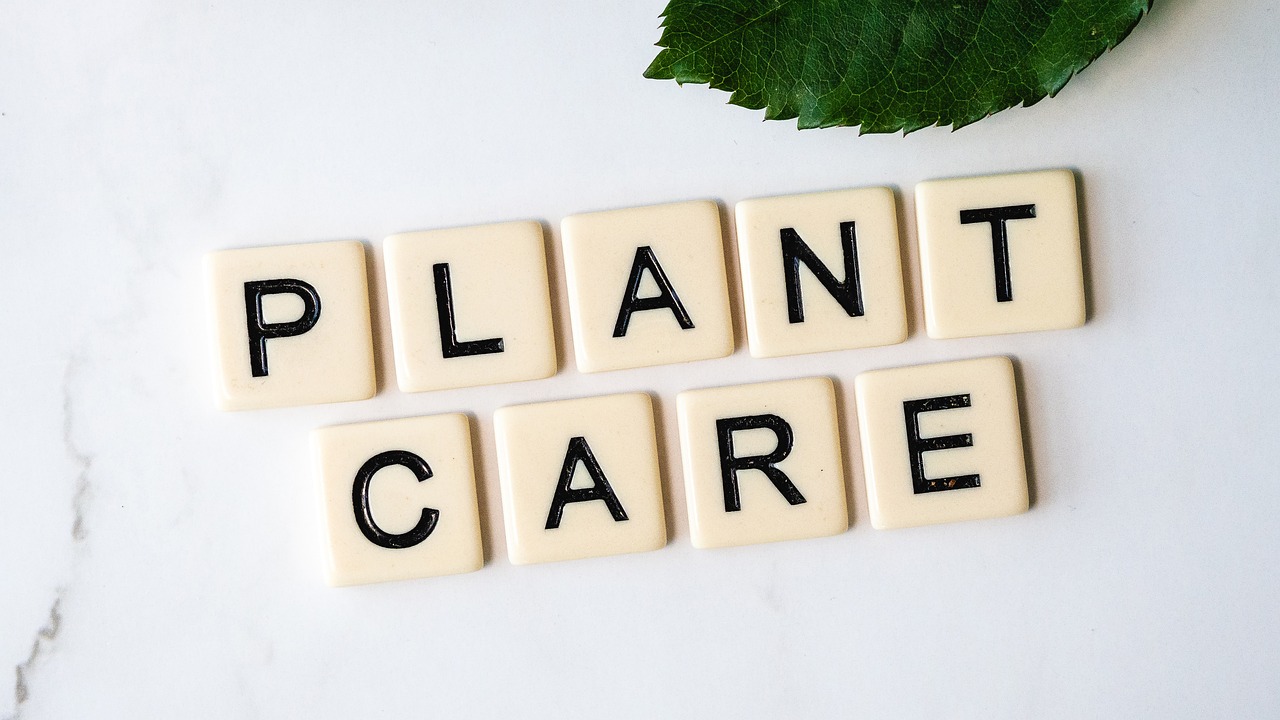
Recognizing When to Seek Help
Understanding when to seek help during the postpartum period is crucial for ensuring both the mother’s and the baby’s well-being. New mothers often find themselves navigating a whirlwind of emotions and physical changes, which can be overwhelming. It’s important to remember that you’re not alone in this journey, and reaching out for support can make a world of difference. But how do you know when it’s time to ask for help?
First and foremost, it’s essential to recognize the warning signs that may indicate a need for professional support. Symptoms such as persistent sadness, extreme fatigue, or feelings of hopelessness should never be brushed aside. If you find yourself feeling disconnected from your baby or unable to bond, these could be red flags signaling the need for assistance. Here are some common signs to look out for:
- Persistent feelings of sadness or anxiety: If these feelings last for more than a couple of weeks, it’s time to reach out.
- Difficulty performing daily tasks: If you struggle to take care of yourself or your baby, don’t hesitate to ask for help.
- Changes in appetite or sleep patterns: Significant weight loss or gain, or trouble sleeping, can indicate deeper issues.
- Thoughts of harming yourself or your baby: If you experience these thoughts, it is critical to seek immediate help.
Additionally, it's important to assess your support system. Are your friends and family aware of what you’re going through? Sometimes, simply talking to someone who understands can provide relief. If you feel isolated or unsupported, consider reaching out to local community resources. Many organizations offer support groups for new mothers, providing a safe space to share experiences and feelings.
Accessing professional help can be daunting, but it’s a vital step in recovery. Start by discussing your feelings with your healthcare provider, who can guide you toward appropriate resources. Whether it’s therapy, medication, or support groups, there are various options available tailored to your needs. Remember, seeking help is a sign of strength, not weakness.
In conclusion, being aware of the signs that indicate a need for help can empower you during this transformative time. Don’t hesitate to reach out; your well-being is paramount, and there’s a network of support waiting to assist you.
Q: What are the common signs of postpartum depression?
A: Common signs include persistent sadness, anxiety, fatigue, difficulty bonding with the baby, and changes in appetite or sleep patterns.
Q: When should I seek professional help?
A: If you experience any concerning symptoms that last for more than two weeks or if you have thoughts of harming yourself or your baby, seek help immediately.
Q: How can I find support groups for new mothers?
A: You can find support groups through local hospitals, community centers, or online platforms that specialize in maternal health.
Q: Is it normal to feel overwhelmed after having a baby?
A: Yes, feeling overwhelmed is common among new mothers. It's important to talk about these feelings and seek support when needed.

Signs of Postpartum Depression
Postpartum depression (PPD) is a serious condition that can occur after childbirth, affecting a significant number of new mothers. It's crucial to recognize the signs early on, as they can greatly impact both the mother and her newborn. While it's normal to feel a mix of emotions after giving birth, PPD goes beyond the typical "baby blues." If you find yourself feeling persistently sad, anxious, or overwhelmed, it might be time to take a closer look at your mental health.
Some common signs of postpartum depression include:
- Persistent Sadness: If feelings of sadness linger for more than two weeks, it’s a red flag.
- Loss of Interest: A new mother may lose interest in activities she once enjoyed, including spending time with her baby.
- Extreme Fatigue: While fatigue is common with a newborn, feeling exhausted to the point of being unable to function is concerning.
- Feelings of Guilt: Many mothers experience guilt about their feelings or their ability to care for their baby.
- Difficulty Bonding: Struggling to connect with your newborn can be a significant indicator of PPD.
It's essential to remember that these symptoms can vary in intensity and duration. Some mothers may experience severe symptoms, while others might feel a milder version. Regardless of the severity, if you or someone you know is exhibiting these signs, reaching out for help is vital. Ignoring these feelings can lead to more severe issues down the line, not just for the mother but also for the child.
In addition to the emotional signs, physical symptoms can also manifest. Many mothers report changes in appetite, weight fluctuations, and sleep disturbances. These physical changes can exacerbate feelings of depression, creating a challenging cycle that can feel impossible to break.
It’s worth noting that PPD can also lead to thoughts of self-harm or harming the baby. If you or someone you know is experiencing such thoughts, it is crucial to seek immediate professional help. There’s no shame in asking for support; in fact, it’s a strong and brave step towards recovery.
Remember, postpartum depression is not a reflection of your abilities as a mother. It’s a medical condition that requires understanding, compassion, and, often, professional intervention. If you suspect you might be experiencing PPD, don’t hesitate to talk to your healthcare provider. They can provide valuable resources and treatment options that can help you navigate this challenging time.
1. What is postpartum depression?
Postpartum depression is a mood disorder that can affect women after childbirth, characterized by severe mood swings, anxiety, and feelings of sadness that persist beyond the typical "baby blues."
2. How common is postpartum depression?
PPD affects about 1 in 7 women after giving birth, though the actual numbers may be higher due to underreporting.
3. What should I do if I think I have postpartum depression?
If you suspect you’re experiencing PPD, it’s essential to reach out to a healthcare professional for evaluation and support.
4. Can postpartum depression affect my baby?
Yes, untreated postpartum depression can impact a mother’s ability to bond with her baby, which can affect the child's emotional development.
5. What treatments are available for postpartum depression?
Treatment options may include therapy, medication, support groups, and lifestyle changes. It's important to discuss these with a healthcare provider.

Accessing Professional Support
Accessing professional support can be a vital step in recovery for new mothers navigating the complexities of postpartum life. It’s not just about physical healing; emotional and mental well-being are equally important. But how do you know when it's time to seek help? It's essential to listen to your body and mind. If you find yourself feeling overwhelmed, anxious, or experiencing prolonged sadness, reaching out for professional guidance is crucial. Remember, seeking help is a sign of strength, not weakness.
When considering professional support, there are various options available. You might start by consulting with your obstetrician or midwife, who can provide referrals to specialists such as therapists or counselors. Additionally, many hospitals and clinics offer postpartum support groups, which can be a fantastic way to connect with others who are experiencing similar challenges.
Here are some key points to consider when accessing professional support:
- Identify Your Needs: Are you facing emotional distress, physical pain, or both? Understanding your specific needs will help you find the right professional.
- Research Local Resources: Look for local mental health services, community health centers, or lactation consultants who specialize in postpartum care.
- Utilize Telehealth Services: If getting out of the house feels daunting, many professionals offer virtual consultations, making it easier to access support from the comfort of your home.
It’s also important to feel comfortable with the professional you choose. Don’t hesitate to ask questions or express any concerns during your initial meetings. A good therapist or counselor will create a safe space for you to discuss your feelings and experiences. Moreover, if you ever feel that a particular professional isn’t the right fit for you, it’s perfectly okay to seek out someone else. Your well-being should always come first.
Additionally, consider the following resources that can assist you in finding the right support:
| Resource | Description | Contact Information |
|---|---|---|
| Postpartum Support International | A non-profit organization offering resources for postpartum depression and anxiety. | Visit Website |
| Local Health Department | Can provide information on available mental health services in your area. | Check local listings |
| Therapist Finder | Online directories to help find licensed therapists specializing in postpartum issues. | Visit Website |
In conclusion, accessing professional support is a crucial aspect of postpartum recovery. Whether you’re dealing with emotional challenges or physical discomfort, reaching out to professionals can provide the guidance and reassurance needed during this transformative period. Remember, you are not alone, and there are resources available to support you through this journey.
- What are the signs that I need professional help? If you are experiencing persistent sadness, anxiety, or feelings of hopelessness, it's important to seek help.
- How do I find a therapist? You can start by asking your doctor for recommendations or searching online directories.
- Are there support groups for new mothers? Yes, many communities offer support groups for new mothers, which can be found through local health departments or online resources.

Conclusion: Prioritizing Postpartum Safety
In conclusion, prioritizing postpartum safety is not just an option; it's a necessity for every new mother. The journey through the postpartum period can be both exhilarating and overwhelming, filled with moments of joy and challenges alike. By understanding the physical and emotional changes that occur, new mothers can better equip themselves for this transformative phase. It’s essential to remember that recovery is not a race; it’s a gradual process that requires patience and self-compassion.
New mothers should take proactive steps to ensure their health and well-being, such as seeking medical advice when needed, establishing a supportive network, and creating a safe environment for their newborns. The importance of rest and nutrition cannot be overstated; they are the cornerstones of recovery. As you navigate this new chapter in life, don’t hesitate to reach out for help from friends, family, or healthcare professionals. Remember, asking for help is a sign of strength, not weakness.
Furthermore, recognizing the signs of postpartum depression and knowing when to seek professional support is crucial. Many mothers experience a range of emotions after childbirth, and it’s vital to address these feelings early on. By prioritizing mental health alongside physical health, new mothers can foster a more positive postpartum experience.
In the end, embracing this journey with an open heart and mind can lead to a fulfilling experience of motherhood. Remember, you are not alone in this; countless resources and communities are available to support you. So, take a deep breath, trust your instincts, and prioritize your safety and well-being during this remarkable time.
- What are the most common physical symptoms after childbirth? New mothers often experience fatigue, pain, and hormonal changes. It's essential to recognize these as normal but to seek help if they become overwhelming.
- How can I manage pain during the postpartum period? Effective pain management strategies include rest, proper medication, and gentle exercises. Always consult your healthcare provider for personalized advice.
- What should I do if I feel overwhelmed emotionally? It's important to talk about your feelings with someone you trust, whether it's a friend, family member, or a mental health professional.
- How can I create a safe environment for my baby? Baby-proofing your home involves removing hazards, ensuring safe sleep practices, and creating a nurturing space for your newborn.
- When should I seek professional help? If you notice signs of postpartum depression or feel unable to cope, it's crucial to reach out to a healthcare provider for support.
Frequently Asked Questions
- What should I expect during postpartum recovery?
Postpartum recovery can feel like a rollercoaster ride! Expect a mix of physical healing and emotional adjustments. Your body is working hard to recover, which means you might experience fatigue, pain, and hormonal shifts. Understanding these changes can help you navigate this period with more ease.
- How can I manage pain and discomfort after childbirth?
Managing pain post-birth is essential for a smoother recovery. Consider using over-the-counter pain relievers, applying ice packs, or taking warm baths. Remember, it's also important to listen to your body and rest as much as you can.
- Why is rest and nutrition important during postpartum recovery?
Rest and nutrition are like the dynamic duo of postpartum recovery! Adequate sleep helps your body heal, while a balanced diet provides the necessary nutrients to support your recovery. Think of it as fueling your body for the marathon of motherhood!
- What are some common emotional challenges new mothers face?
New mothers often grapple with feelings of anxiety, sadness, or even overwhelm. It's completely normal! Hormonal changes and the pressures of caring for a newborn can lead to these feelings. Don't hesitate to reach out for support from friends, family, or professionals.
- How can I create a safe environment for my baby?
Creating a safe space for your little one is crucial. Start by baby-proofing your home—think about removing hazards like sharp objects and securing furniture. Also, ensure that the baby's sleeping area is safe with a firm mattress and no loose bedding!
- What are safe sleep practices for newborns?
Safe sleep practices are vital to reducing risks for your baby. Always place your infant on their back to sleep, use a crib that meets safety standards, and keep the sleep area free from toys and blankets. These simple steps can make a world of difference!
- How can I build a support network as a new mother?
Building a support network is like having your own cheer squad! Connect with family and friends who can lend a hand, and don't shy away from community resources. Joining parenting groups can also provide valuable connections with other new moms.
- When should I seek professional help during postpartum recovery?
It's important to know when to seek help. If you're feeling persistently sad, anxious, or overwhelmed, it might be time to talk to a professional. Early intervention can make a huge difference in your recovery journey.
- What are the signs of postpartum depression?
Postpartum depression can manifest in various ways, including extreme sadness, irritability, or loss of interest in activities you once enjoyed. If you notice these signs, don’t hesitate to reach out for help—you're not alone in this!
- How can I access professional support for postpartum concerns?
Accessing professional support is easier than you might think! Start by talking to your healthcare provider about your concerns. They can guide you to the right resources, whether it's therapy, support groups, or additional medical care.



















